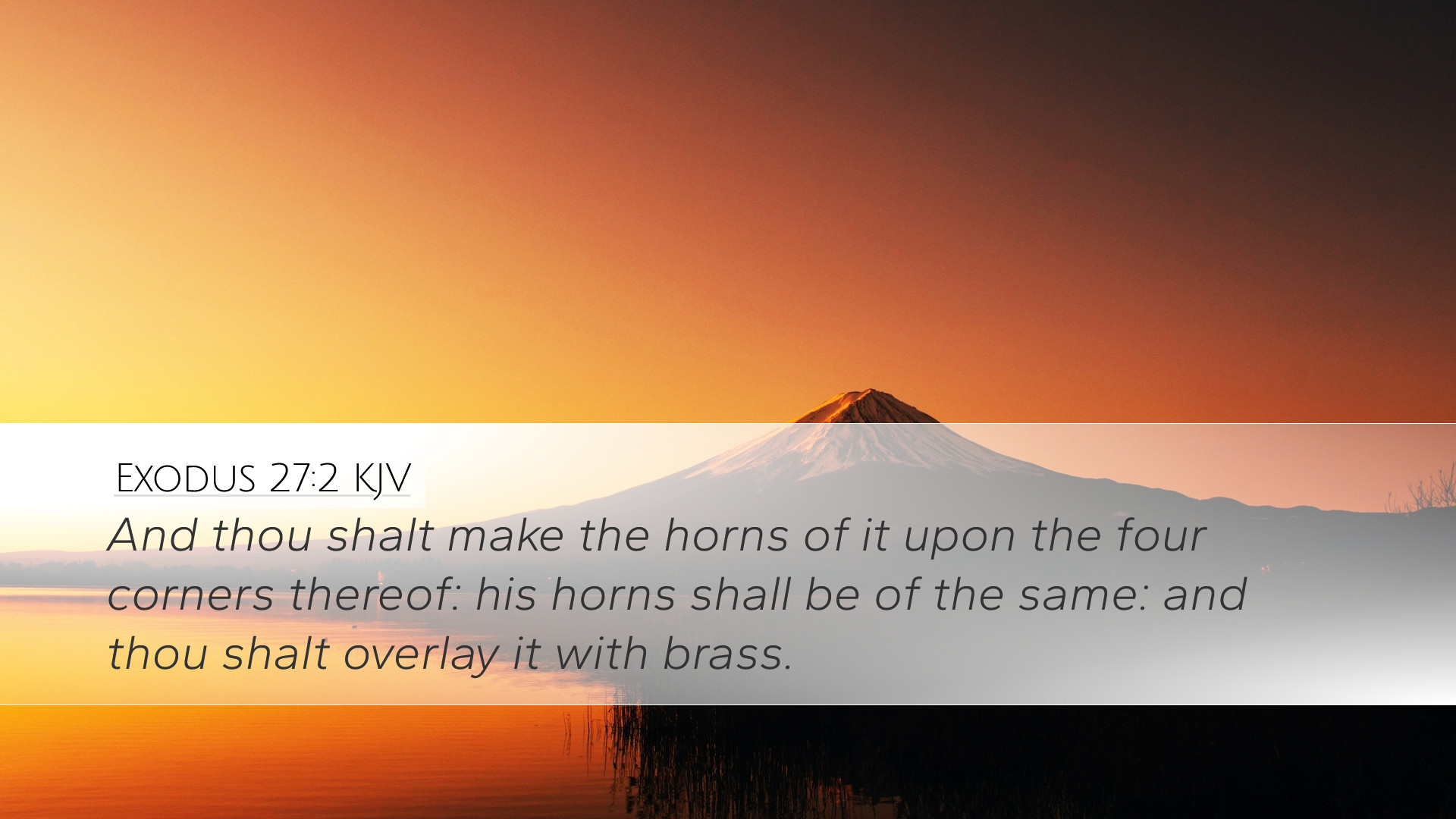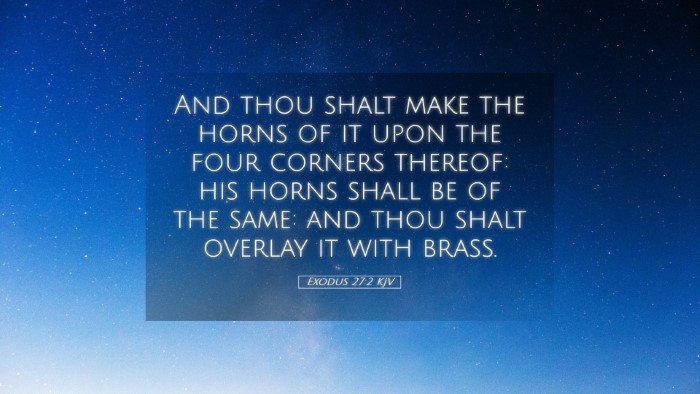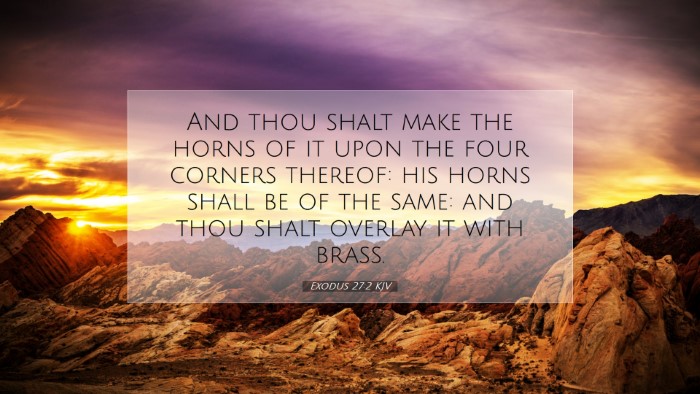Exodus 27:2 Commentary
Verse: “And thou shalt make the horns of it upon the four corners thereof: its horns shall be of the same; and thou shalt overlay it with brass.” - Exodus 27:2
Introduction
The instruction given in Exodus 27:2 regarding the construction of the altar is rich with theological significance. The prophetic visions, as well as practical guidelines for the worship of God in the Old Covenant, provide a lasting framework for understanding God’s holiness and the means of approach by His people. This commentary seeks to distill insights from noted public domain commentators including Matthew Henry, Albert Barnes, and Adam Clarke to elucidate the meaning and implications of this verse.
Context of the Altar
The altar in question is the brazen altar, where sacrifices were offered. It stands as a symbol of atonement and the seriousness of sin, as God’s covenant people approached Him through ordained sacrifices. This altar represented a critical aspect of the worship framework established under the Mosaic law.
Matthew Henry's Insights
Matthew Henry emphasizes that the altar's construction reflects the utmost care taken in the worship of God. He details the significance of the horns on the altar, which symbolized strength and refuge. The horns provided a physical representation of the people’s cry for mercy and the assurance that the sacrifice made is lifted up to God. Henry further notes:
- Horns as Symbols: The horns signify power and the means by which the prayers of the people ascend to God.
- Matter and Form: The usage of brass indicates durability, pointing to the lasting nature of God’s covenant and His enduring mercy.
Albert Barnes' Commentary
Albert Barnes provides an extensive examination of the materials prescribed for the altar. He remarks that brass (or bronze) underscores the idea of purification and judgment, epitomizing the severity required for atonement. Barnes highlights several key points:
- Brass as a Material of Judgment: The selection of brass is noted for its resistance to the elements, serving as a reminder of the permanence of God’s judgments.
- Symbolism of Fire: The altar’s place within the tabernacle signifies the active presence of God, who consumes with fire those things that are unclean, yet accepts the sacrifices of the righteous.
Adam Clarke's Contributions
Adam Clarke provides a theological reflection on the architectural elements of the altar. He analyzes its dimensions and design as not merely functional but emblematic of spiritual truths:
- Dimensions: The altar's height and width reveal a need for humility before God, emphasizing that while access to God is granted through sacrifice, it also comes with recognition of His greatness.
- Craftsmanship: Clarke points out the importance of meticulous craftsmanship in the making of sacred objects, highlighting that God deserves the best from His people.
Theological Reflections
The study of this verse opens doors to profound theological reflection. Here are some key themes drawn from the commentaries:
- The Nature of Atonement: The altar symbolizes the core message of atonement in Christ, with its horns acting as a reminder of the powerful intercession, much like the blood of Christ speaks a better word (Hebrews 12:24).
- God’s Holiness and Mercy: The altar serves as the intersection of God’s holiness and the sinner's need for mercy. It represents both divine justice and the unfathomable grace offered through sacrifice.
Application for Today
The implications of Exodus 27:2 extend beyond the ancient context, demanding application in contemporary worship practices:
- Worship and Sacrifice: Modern believers are called to present their bodies as living sacrifices, holy and pleasing to God (Romans 12:1), reflecting the spirit of sacrifice embodied at the brazen altar.
- Community and Refuge: The altar was a communal space for atonement. Today, the church serves as that gathering place, where believers find refuge in God’s mercy.
Conclusion
Exodus 27:2, while a detailed directive on the construction of the altar, invites believers into a deeper understanding of God’s divine order and the sacrificial nature of true worship. The insights drawn from historical commentary provide not only an exegetical perspective but also offer practical applications for the life of the church today.


